
Language Testing in Asia
Scope & Guideline
Elevating standards in language assessment for the Asian landscape.
Introduction
Aims and Scopes
- Language Assessment Methodologies:
The journal focuses on diverse methodologies for assessing language proficiency, including formative, summative, and dynamic assessment approaches. It emphasizes the importance of aligning assessment practices with pedagogical goals. - Impact of Assessment on Learning Outcomes:
Research published in the journal frequently investigates how various assessment types influence language learning outcomes, such as motivation, self-efficacy, and academic resilience among learners. - Teacher and Learner Perspectives:
The journal highlights studies that explore the perceptions and experiences of both teachers and learners regarding language assessment, providing insights into the effectiveness of different assessment practices. - Technological Integration in Assessment:
There is a growing emphasis on the integration of technology in language assessment, including the use of AI, online assessments, and digital tools to enhance the assessment experience and outcomes. - Cultural and Contextual Factors in Assessment:
The journal addresses how cultural and contextual factors impact language assessment practices, ensuring that the research is relevant to the diverse educational landscapes in Asia.
Trending and Emerging
- Learning-Oriented Assessment (LOA):
There is an increasing focus on learning-oriented assessment practices that prioritize student engagement, self-assessment, and the development of critical thinking skills, reflecting a pedagogical shift towards learner empowerment. - Technology-Enhanced Assessment:
Emerging themes include the integration of technology in language assessment, such as the use of AI and digital platforms, which are reshaping how assessments are conducted and perceived in educational settings. - Assessment of Affective Factors:
Research is increasingly addressing the role of affective factors, such as test anxiety, motivation, and emotional regulation, in language learning and assessment, highlighting the importance of holistic approaches in evaluation. - Competency-Based Assessment Practices:
There is a growing trend towards competency-based assessment practices that align with real-world language use, allowing for a more practical evaluation of learners' abilities. - Collaboration and Peer Assessment:
The theme of collaborative and peer assessment is gaining traction, with studies exploring how these practices can enhance learning outcomes and foster a sense of community among learners.
Declining or Waning
- Traditional Assessment Methods:
There is a noticeable decrease in research focused on traditional assessment methods, such as paper-based testing and standardized exams, as the field shifts towards more innovative and adaptive assessment strategies. - General Language Proficiency Testing:
Research centered around general language proficiency tests is becoming less frequent, possibly due to a growing interest in more specific and context-driven assessments that reflect learners' actual performance in real-world scenarios. - Single-Dimensional Assessment Constructs:
The focus on single-dimensional constructs of language ability, such as grammar or vocabulary in isolation, is declining in favor of more holistic approaches that consider multiple dimensions of language proficiency. - Assessment in Non-EFL Contexts:
The journal has seen a reduction in studies related to language assessment in non-English as a Foreign Language (EFL) contexts, indicating a narrowing of focus to primarily EFL settings. - Overemphasis on High-Stakes Testing:
Research exploring the implications of high-stakes testing is less frequent, suggesting a shift towards more formative and learner-centered assessment approaches.
Similar Journals
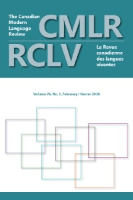
CANADIAN MODERN LANGUAGE REVIEW-REVUE CANADIENNE DES LANGUES VIVANTES
Bridging Theory and Practice in Modern Language EducationCanadian Modern Language Review - Revue Canadienne des Langues Vivantes is a leading scholarly journal published by University of Toronto Press Inc, focused on the field of linguistics and language education. With its ISBN 0008-4506 and E-ISBN 1710-1131, this journal has established itself as a significant contributor to research in both the education and linguistics categories, currently holding a Q3 classification in Education and a Q2 in Linguistics and Language as of 2023. It boasts an impressive Scopus rank within the top percentiles for both fields, ensuring its validity and relevance among contemporary academic discourse. The journal's emphasis on publishing high-quality research aims to advance understanding and promote effective pedagogical practices, making it an essential resource for researchers, educators, and students passionate about modern languages. The Canadian Modern Language Review has been active from 1996 to 2024, facilitating discussions that bridge linguistic theory and educational practices, although it maintains a subscription-based access approach. Situated in Toronto, Canada, at the Journals Division, 5201 Dufferin St, Downsview, ON M3H 5T8, this journal invites contributions that explore innovative methodologies and critical issues in the field, fostering an environment of academic rigor and collaboration.

Malaysian Journal of ELT Research
Empowering Educators with Cutting-Edge ELT InsightsMalaysian Journal of ELT Research is a pioneering platform dedicated to advancing the field of English Language Teaching (ELT) research, published by the Malaysian English Language Teaching Association. With an ISSN of 1511-8002, this journal serves as a vital resource for educators, researchers, and practitioners who are passionate about enhancing English language instruction in Malaysia and beyond. Although specific impact factors are currently not available, the journal's commitment to quality research is evident in its rigorous peer-review process, fostering innovative studies that address contemporary challenges in ELT. The journal embraces a wide range of topics within English language pedagogy, including but not limited to curriculum development, teaching methodologies, and language assessment. It provides an open-access model, ensuring that valuable research insights are readily accessible to a global audience. With its strategic focus on enriching English language education, the Malaysian Journal of ELT Research stands as an important contributor to scholarly discourse in the realm of language teaching and learning.
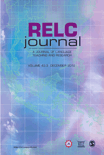
RELC Journal
Advancing Knowledge in Education and LinguisticsRELC Journal, published by SAGE Publications Ltd, stands as a leading platform in the fields of Education and Linguistics, boasting an impressive Q1 ranking in both categories according to the latest metrics. Established in 1970 and continuing its commitment to academic excellence through 2024, the journal features rigorous peer-reviewed research that explores the intersections of language, culture, and pedagogy. With a notable Scopus ranking that places it in the 98th percentile for both Language and Linguistics (Rank #16/1088) and Education (Rank #91/1543), the RELC Journal is essential for scholars, educators, and practitioners seeking to contribute to and stay abreast of cutting-edge developments in their respective fields. Although currently not open access, the journal remains accessible to a diverse audience and invites contributions that challenge conventional perspectives and inspire innovative practices in language education.
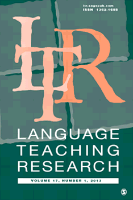
Language Teaching Research
Unveiling the complexities of language acquisition.Language Teaching Research, published by SAGE Publications Ltd, serves as a pivotal platform for scholars and practitioners in the domains of education and linguistics. Since its inception in 1997, this prestigious journal has maintained its status within the Q1 category for both Education and Linguistics, symbolizing its significant impact and commitment to excellence in research. With impressive Scopus rankings placing it among the top percentile in its fields, Language Teaching Research provides a comprehensive array of articles, studies, and reviews dedicated to advancing the theory and practice of language education. Although currently not an Open Access journal, it remains essential reading for those engaged in the evolving challenges and methodologies surrounding language teaching and learning. The journal aims to foster insightful discussions and disseminate innovative research findings, making it a crucial resource for educators, researchers, and students keen on enhancing language acquisition and pedagogical strategies.
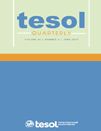
TESOL QUARTERLY
Shaping Language Learning with Empirical ExcellenceTESOL Quarterly, published by Wiley, is a premier academic journal in the fields of Education and Linguistics, noted for its significant contributions to the study of Teaching English to Speakers of Other Languages. Since its inception in 1981, this journal has established itself as a vital platform for researchers and educators, emphasizing empirical studies, innovative teaching practices, and critical reviews that inform policy and pedagogy. With an impressive impact factor, it consistently ranks in the Q1 Quartile across multiple categories in both Education and Linguistics, highlighting its influence and reach within the scholarly community. The journal boasts strong Scopus rankings, placing it in the top 96th percentile among related publications, further affirming its essential role in disseminating cutting-edge research. Although it does not offer open access, TESOL Quarterly remains dedicated to promoting high-quality scholarship that advances the understanding of language education practices globally.

Reading in a Foreign Language
Exploring the Depths of Second Language ReadingReading in a Foreign Language is a premier academic journal published by the University of Hawaii, College of Languages, Linguistics & Literature, dedicated to fostering the field of second language acquisition. With an ISSN of 1539-0578, this esteemed journal boasts a solid reputation, being ranked in the Q1 quartile in both Education and Linguistics, highlighting its significant impact within these disciplines. Covering the latest research and advancements from 2019 to 2024, Reading in a Foreign Language serves as an essential resource for educators, researchers, and students aiming to deepen their understanding of reading proficiency in second languages. Although Open Access is not offered, the journal's influential position is underscored by its impressive Scopus rankings, with 82nd percentile status in Linguistics and Language, and 52nd percentile in Education, making it a valuable asset for those enhancing their academic and professional pursuits in language studies.
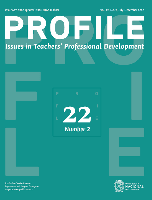
Profile-Issues in Teachers Professional Development
Cultivating Knowledge: A Platform for Teacher Development DiscourseProfile - Issues in Teachers Professional Development is a distinguished open access journal published by the Universidad Nacional de Colombia, Facultad Ciencias Humanas, aimed at fostering research and discourse surrounding critical issues in educators' ongoing professional development. Since its inception in 2005, the journal has established itself as a significant resource within the fields of Education and Linguistics and Language, reflecting its relevance through its category quartiles, being positioned in Q3 in Education and an impressive Q1 in Linguistics and Language for 2023. The journal boasts a commendable Scopus ranking, reflecting its impact and commitment to advancing scholarly discussion, with rankings of #236 out of 1167 in Linguistics and Language, and #818 out of 1543 in Education. With a converged timeline from 2018 to 2024, it serves as a vital platform for educators, researchers, and students alike, encouraging the dissemination of innovative practices and insights essential for the evolution of teacher training and professional growth in a rapidly changing educational landscape.
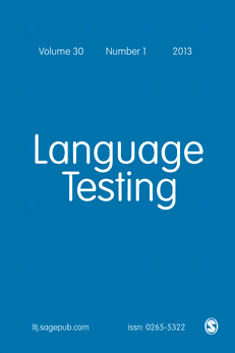
Language Testing
Advancing the Science of Language AssessmentLanguage Testing is a prestigious academic journal published by SAGE Publications Ltd, focusing on the multifaceted fields of linguistics and language assessment. With an impressive impact factor, this journal is recognized as a top-tier publication, attaining a Q1 category ranking in both Linguistics and Social Sciences as of 2023, underscoring its significant contribution to the field. Since its inception in 1984, Language Testing has provided a platform for rigorous research on language assessment policies, innovative testing methodologies, and the implications of testing practices across diverse contexts. The journal is indexed in Scopus, achieving remarkable rankings—27th in Language and Linguistics and 31st in Linguistics and Language within the top 3% of its field, highlighting its prominence among academic peers. Though it is not an open access journal, the rich content serves as an essential resource for researchers, educators, and professionals aiming to enhance their understanding of language assessments. With a commitment to fostering rigorous dialogue and knowledge exchange, Language Testing continues to be a cornerstone for anyone dedicated to advancing the study and application of language assessment.

English Teaching and Learning
Transforming English Learning with Scholarly ExcellenceEnglish Teaching and Learning is a distinguished academic journal published by SPRINGER SINGAPORE PTE LTD, focusing on the dynamic fields of education and linguistics. With an ISSN of 1023-7267 and an E-ISSN of 2522-8560, this journal serves as a vital platform for researchers, educators, and practitioners interested in advancing the understanding of English language instruction and learning methodologies. Recognized for its high standards, it has achieved a notable Q2 ranking in Education and a prestigious Q1 ranking in Linguistics and Language in 2023, underscoring its impact within these essential scholarly fields. The journal, which spans a converged publication period from 2015 to 2024, endeavors to disseminate innovative research, theoretical insights, and practical applications, making it an invaluable resource for anyone committed to enhancing English education globally. Although it does not operate under an open-access model, its contributions are pivotal in shaping contemporary discourse in English teaching and learning.

Porta Linguarum
Advancing linguistic insight for a transformative educational landscape.Porta Linguarum, published by UNIV GRANADA in Spain, is a pioneering journal dedicated to the fields of linguistics and language studies, with a dual focus on the educational implications and applications within these disciplines. Launched in 2008 and continuing its impactful contributions into 2024, the journal is recognized for its rigorous peer-reviewed articles that address contemporary language issues, pedagogical approaches, and linguistic research, evidenced by its notable rankings in the 2023 Scopus metrics. Porta Linguarum holds a distinguished Q1 classification in Linguistics and Language, alongside a respectable Q3 placement in Education, marking it as a valuable resource for academics and practitioners alike. With an impressive ranking of 231 out of 1088 in the Arts and Humanities category and a strong 78th percentile ranking for Language and Linguistics, this journal facilitates the exchange of innovative ideas and promotes scholarly discourse. Although currently not adopting an open access model, it remains an essential platform for advancing knowledge in linguistics and education.